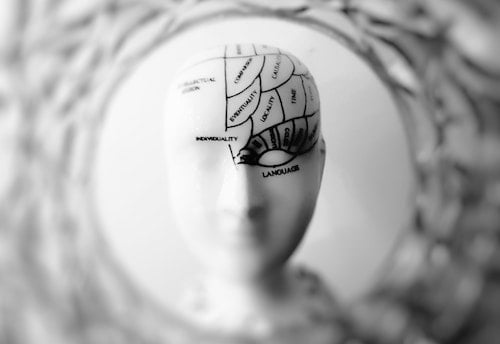Languages and Brain Power: How to Boost your Cognitive Skills
Thanks to years of research on the relationship between languages and brain power, it is now a well-established fact that learning another language can have an immensely positive impact on your cognitive skills.
Language knowledge and use have been shown to improve people’s executive function and working memory, and they have also been linked to higher levels of cognitive reserve.
→Sign Up Now: Free Trial Language Lessons With Native Teachers!←
If you’re looking for a way to boost your brain power, learning languages is not just a great option: it’s one of the best things you can do to stay healthy, creative, and independent even in old age.
Here are some benefits that learning languages have for your overall cognitive abilities:
Learning languages can help improve your memory
As we age, losing our memory becomes one of our biggest fears. Luckily, now we know that languages have a key role to play if we want to delay that process.
A recent study found that bilingual adults were better able to remember information than monolingual adults, and another found that people who know more than one language may be better protected against Alzheimer’s disease and other forms of dementia.
According to the experts behind these studies, this is because (1) learning multiple languages helps the brain to better filter out irrelevant information and focus on what is important, and (2) speaking more than one language forces the brain to be more flexible and adaptable, which may help to keep it fit as we age.

But that’s not it. One of the most fascinating things about languages is that they can help us unlock hidden memories. A 2017 study found that bilingualism can also change the way our brains store memories, making them more readily available.
This means that if you learn a new language, you may be more likely to remember things from your past that you had forgotten. Learning a new language, in short, can not only help improve your memory in the present, but it can also help you access memories from the past. Impressive, right?
Languages and brain power: benefits on your executive function
The executive function is a set of cognitive skills that helps us to plan, organise and complete tasks. It is often said to be the ‘CEO of the brain’, as it helps to control and coordinate our other cognitive processes.
There is growing evidence to suggest that learning languages can help improve this function. One study, for example, found that bilingualism was associated with better task-switching abilities, while another found that bilingualism was linked to improved working memory.
This is likely because learning languages forces the brain to constantly juggle multiple tasks and pieces of information, and the constant mental ‘workout’ involved in language learning helps to keep the brain fit and sharp, improving our mental performance even in tasks that imply a heavy memory load.
Learning languages can help improve your cognitive reserve
Cognitive reserve is a term used to describe the brain’s ability to withstand damage and keep functioning. It is often said to be like a ‘buffer’ against age-related cognitive decline.
But what is the relationship between languages and our brain’s cognitive reserve?
According to scientists, learning a language enhances your cognitive reserve because, as a language learner, you often have to engage in complex mental processes such as understanding grammar rules or even learning a whole new writing system. This type of mental stimulation helps to keep the brain active and delays the loss of memory and brain capacity that comes with old age.
Language knowledge and frequent use force the brain to constantly adapt and change, which helps to build up its reserve of cognitive resources.
So, if you want to boost your brain power as you age, learning languages is a great way to do it!
Learning languages can help improve creativity
Creativity is all about coming up with new ideas and seeing things in new ways. It is much more than being artistic or ingenious: it is an important cognitive skill that helps us to solve problems and find new solutions in all areas of life.
Interestingly, languages can also help to boost creativity! One study found that bilingualism was associated with increased creative thinking, and another found that people who know more than one language tend to be more open-minded and flexible in their thinking.

This is likely because languages expose us to different ways of seeing the world and allow us to read the reality around us from multiple perspectives. As a result, we are more capable of coming up with new and original ideas that we wouldn’t have thought of before.
Additionally, learning a new language requires you to be creative when it comes to effective communication. For example, if you are learning a new language but you’re not very fluent in it just yet, you’ll have to resort to multiple strategies to convey your ideas despite your lack of vocabulary.
Languages and brain power: Learning Strategies
These are just some of the ways in which languages can help improve cognitive skills. If you’re looking for a way to boost your brain faculties, learning languages is a great option.
Last month, we shared a detailed guide on how to learn a language in 5 steps. Here is a summary of the main points from our previous post to help you make the most out of your language learning:
1. Choose a language that interests you.
By choosing a language that you genuinely feel curious about, you’re more likely to stick with it even when challenges start to appear. Besides, the act of learning itself will be more pleasant if you’re pursuing a language for personal reasons rather than out of necessity.
2. Start small.
Don’t try to learn an entire language from scratch overnight. You’ll quickly become overwhelmed and discouraged. Instead, start with the basics and build up gradually. Focus on mastering key phrases and vocabulary related to topics that interest you before you move on to more complex aspects.
3. Practice regularly.
The more you use your new language, the better you’ll become at it. Try to find opportunities to practice on a daily basis, even if it’s just for a few minutes. You can use online resources, apps, or even simple conversations with friends or family members who speak the language.
4. Set achievable goals.
When learning a new language, it’s important to set realistic objectives that you can actually achieve. This will help you to stay motivated and on track. For example, rather than saying you want to become fluent in the language, try setting a goal of being able to hold a basic conversation in it after six months.
5. Find a native tutor.
One of the best ways to learn a new language is to practice it with a native speaker. This will not only help you to improve your language skills but also give you insights into the culture and way of life of another community. Besides, you’ll be able to get valuable feedback from a model speaker.
Fortunately, this is the part where we can help you.
At Language Trainers, we offer tutoring services in over 100 languages. But what really sets our services apart is that all our courses are tailor-made to suit every student’s needs, preferences, and current level. And since our lessons are flexible, you can study whenever and wherever it’s convenient for you, both online and face-to-face.
→Sign Up Now: Free Trial Language Lessons With Native Teachers!←
So, if you’re ready to start learning languages to boost your cognitive skills, don’t hesitate to contact us today. We’ll be happy to help you choose the right course and get started on your language-learning journey!
